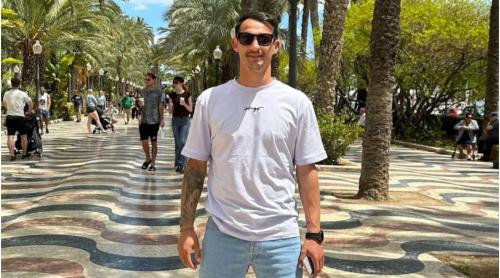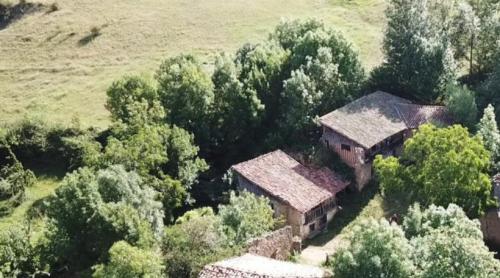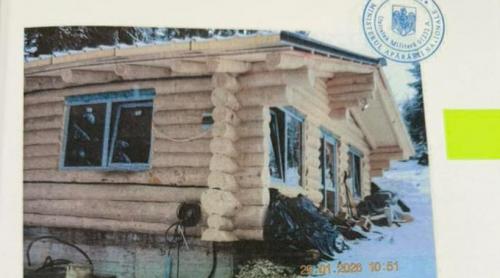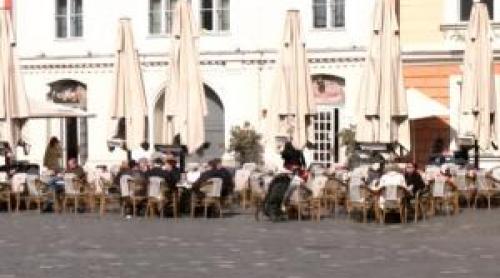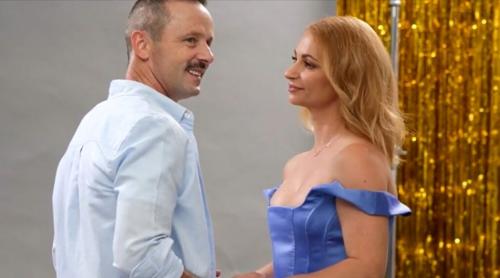Adrian Nastase, Speaker of the Chamber of Deputies, made a surprising move when he opened Saturday to journalists his home on 16 Zambaccian street. Television networks used the footage extensively over the week-end, so one might say that Nastase hit the bullâs eye.
The setting for Nastase to make his
case was his own home, for all to get his message across: that he had nothing to hide. Thus the mystery of a prosecutorsâ investigation was killed, and any subsequent official search would be regarded as a routine operation.
However, it rests to be seen if his move will prove in the end beneficial or not.
Nastase personally invited me, calling Friday afternoon and telling me that I was scheduled to make part of the print media group to enter his house at 5 p.m.; the television networks were scheduled for noon.
Though it was my first time on the Zambaccian street, locating the house was no problem since it was marked by television vehicles parked in front of it. Though a journalist myself, I did not get pass my colleagues without being interviewed on my expectations of the visit that was about to start.
Anca Alexandrescu, media adviser for Adrian Nastase, opened the gate to the property, behind which a tiny strip of land made the garden; understandably small too: land is worth its weight in gold in this part of Bucharest.
The entrance looked like one of a private medical clinic; two secret service officers just glanced at us. The lift was too small for all of us, so we went up to the third floor in groups of five.
The hosts welcomed us; they were Nastase, his wife Dana, and his sister, Dana Barb.
The first surprise was there were no hangers for the many coats.
I brought a lock made in China, as a present for the new home; it was covered in golden metal, so if prosecutors find it in their search I state in advance that it was I who brought it and that it was not made of gold.
Nastase got my joke and quickly commented: "One more thing from China, one more proof for the prosecutors in this case!" said he. Prosecutors requesting the Houseâs approval to search Nastaseâs house alleged he received bribes in the form of window frames and furniture, all made in China.
The main room on that floor was the living room, with two areas: one for watching television, the other for dining.
All journalists took a seat around the table, seated on precious chairs, and had a cup of coffee in beautiful china, while Nastase restated his point of view.
The problems, as he saw them, stemmed from an unclear status of the land on which the building was erected. Nastase said the company of Sergiu Sechelariu had a lot of things to sort out, but that he did not call to court yet Sechelariu. "He is to present the owners of the apartments in the building the final check pay and we will move from there," Nastase said.
However, the ownership contracts for the apartments in the building did not state the value of the land, Nastase added.
The money Nastase paid initially for the plot of land on which the block of flats was later built was the subject of the initial complaint filed by Mona Musca, former minister of culture in the Tariceanu government, when her liberal party was in opposition, and Nastase held the PM office and his social-democrat party ruled. Muscaâs claim was that Nastase bought the plot of land at a grossly undervalued price, which in fact was form of bribe he received.
Nastaseâs house was full of art objects from the Far East and this worked as an ice-breaker for the conversation helping journalists to address one of the topics on the prosecutorsâ list: the containers with construction materials imported from China.
Nastase said the import was a sensible choice for the construction company, since the building materials were cheaper. He added that the containers holding them were controlled by the customs office in Bacau, and that all the details would be clarified by Sechelariuâs construction company, Nastase hoped.
Sechelariu was elected senator in 2000, on the social democrat ticket, and then worked as a deputy minister in the Ministry of Transportation.
Nastase has his office on top of the building - the fourth floor. There, he said, he felt the most comfortable, surrounded by books. Journalist Ion Cristoiu, part of the media group visiting the house a few hours earlier, bought from Nastase a record of Romanian media, of years 1913 - 1914, for one million lei s28 eurost.
But as many collectors, Nastase resents parting with his collection, so he made it clear to me to not dream he could repeat the gesture of selling an item during that day.
He showed us his first buy, as a budding collector, at age 17, of a drawing by Iser sIosif, a Romanian paintert. "It is not very valuable, but to me it has great sentimental value," Nastase said.
Dana Nastase was visibly changed and shaken by the events of the past weeks. "This home meant only trouble to us. As soon as the media and prosecutorsâ frenzy will die out we will sell it," she said.
One guest says that a real - estate expert evaluated it at four million euros just by looking at it on the television screens.
"Iâll sell it to him for that money," said Nastase.
After someone invites you into oneâs home, it is rude to start commenting on that oneâs taste for interior design choices. However, some media outlets chose afterwards to go on that path.
Nastase said he wanted the investigation into his case to arrive swiftly at a conclusion.
I left his home with the pleasant feeling you have after visiting the home of an accomplished intellectual, who collected all his life books, paintings and art.
Only one sorrow I had, that there was no way I could buy from him the book Omul aproximativ sThe Almost Humant of Tristan Tzara, the Romanian who founded the Dada movement at the beginning of the 20th century ...
Translated by ANCA PADURARU




